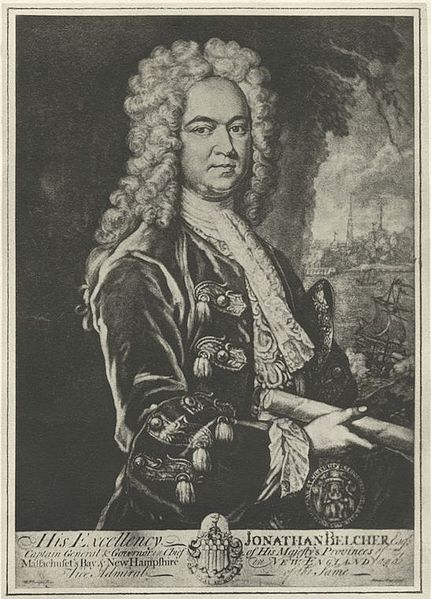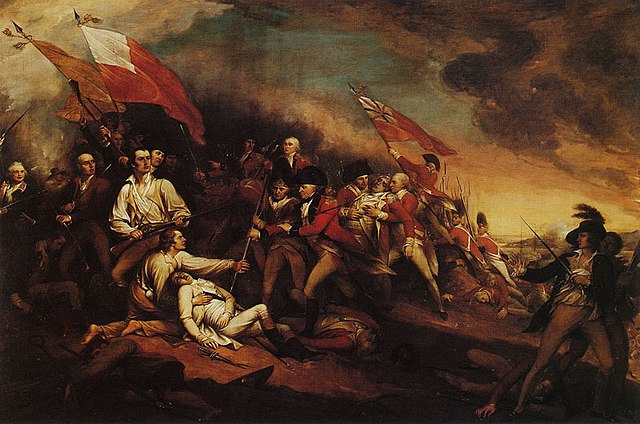Jonathan Belcher was a merchant, politician, and slave trader from colonial Massachusetts who served as both governor of Massachusetts Bay and governor of New Hampshire from 1730 to 1741 and governor of New Jersey from 1747 to 1757.
Belcher's summer home in Milton, Massachusetts, was destroyed by fire in 1776, but portions of it may have survived in its replacement, built by his widow.
Belcher commissioned this engraved portrait when he was appointed governor of the Massachusetts and New Hampshire colonies.
Despite being treated with indifference by Belcher, William Shirley obtained political prominence and power, later maneuvering to obtain Belcher's removal from office in 1741.
Richard Waldron was Belcher's kinsman and right-hand man in the administration of the New Hampshire province.
Province of Massachusetts Bay
The Province of Massachusetts Bay was a colony in New England which became one of the thirteen original states of the United States. It was chartered on October 7, 1691, by William III and Mary II, the joint monarchs of the kingdoms of England, Scotland, and Ireland, and was based in the merging of several earlier British colonies in New England. The charter took effect on May 14, 1692, and included the Massachusetts Bay Colony, the Plymouth Colony, the Province of Maine, Martha's Vineyard, Nantucket, Nova Scotia, and New Brunswick; the Commonwealth of Massachusetts is the direct successor. Maine has been a separate state since 1820, and Nova Scotia and New Brunswick are now Canadian provinces, having been part of the colony only until 1697.
A 1773 lithograph of the Boston Tea Party
John Trumbull's 1834 portrait of Joseph Warren's death at the Battle of Bunker Hill






